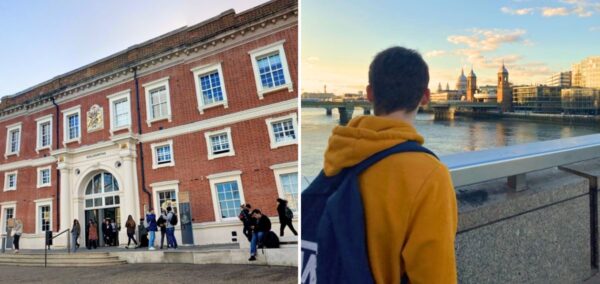
Exposed: The Russell Group universities most dependent on international student fees
All that money and the PM has banned students from bringing their family to the UK?
International students’ tuition fees account for almost a quarter of all income earned by Russell Group universities last year, data analysed by The Tab reveals.
Across the 24 institutions, international students’ tuition fees averaged 23 per cent of universities’ income in the academic year 2021/22.
Although international students only make up 34 per cent of all Russell Group students, they generated almost £5 billion in tuition fees (£4,946,915,000), nearly £1.5 billion more than home students (£3,562,695,000).
Despite this, Rishi Sunak’s new legislation came into play on January 1st which bans overseas students from bringing family members to the UK.
From today, the majority of foreign university students cannot bring family members to the UK.
In 2024, we’re already delivering for the British people. https://t.co/m0TcSaxK9V
— Rishi Sunak (@RishiSunak) January 1, 2024
The data reveals just how over-reliant Britain’s top universities have become on the cohort.
Last year, university vice-chancellors warned the current funding model for universities is “broken” as the cap on home based tuition fees has left universities unable to keep up with inflation.
Although the hike in tuition fees in 2012 to £9,000 caused great anger among students, anger which still runs deep today, the cap has only ever been lifted once, up to £9,250 in 2017.
The problem, according to Universities UK (UUK), is inflation has eaten away at the value of what a home-based student pays. £9,250 in 2017 is now worth just over £6,500 to universities.
While UK students continue to pay £9,250, there is no such cap on international student fees.
Critics have suggested international students are being exploited with unfair price hikes in order to make up for the declining worth of home fees.
The average international student now pays £22,000 a year for the same undergraduate course. They get the same access to teaching, sit in the same lectures and seminars but are expected to pay well over double the price.
Data analysed by The Tab shows the University of Glasgow received over £290 million from international students’ tuition fees in academic year 2021/22, which made up 31.2 per cent of their total income.
This percentage is similarly high for LSE, where international students’ tuition fees accounted for 30.7 per cent of total income.
The University of Manchester made over £356 million two years from international students’ tuition fees, which was a 16.6 per cent increase from the year before.
These universities are potentially the Russell Group members at the most risk from the government’s new immigration plans which will limit the number of overseas students studying in the UK.
And now, international students studying for an undergraduate degree are no longer allowed to bring their family members to the UK as dependents.
The government is changing international students’ visas in a bid to reduce net migration after it reached record highs in 2022.
The announcement was criticised by the Russell Group chief executive, Dr Tim Bradshaw. He admitted international students provide “vital income to support education for UK students and world leading research”.
“Global competition for international students is fierce and some of the announcements made [by the government] are likely to have a negative impact on universities’ plans to diversify their international students intakes,” he added.
Nick Hillman, the director of the Higher Education Policy Institute, warned the government’s new policy is a “bad idea” and the UK “will lose talent as a result”.
He told The Tab: “If they [universities] have less income and fewer students, then they just won’t be as good.
“They won’t have as much money to look after their estates, to have a decent student-staff ratio too.”
Hillman also placed emphasis on the value of international students in creating a more diverse learning environment. He explained: “You learn more if you’re sitting alongside people from all over the world, who’ve had different experiences and are from different cultural backgrounds.
“International students are not just about money. They make university more diverse, more interesting, and create better learning environments.
“All the educational evidence is very, very clear on the fact that diverse classrooms and diverse lecture halls produce a better learning experience.”
However, Hillman believes Russell Group universities are more insulated from the potential effects of the government’s new policy, arguing their high global ranking and status will keep fuelling demand even if a large proportion of other students are deterred.
“Even if it puts some people off from studying there, there’s plenty of other people who want to study there [at Russell Group universities], and they can just displace them with others.
“This new policy will particularly affect somewhat less prestigious universities which are in some of the less wealthy parts of the UK.”
Related stories recommended by this writer:
• Revealed: These are the 50 best UK universities in the world right now
• The majority of students are currently living with mould or damp in their uni homes
• ‘They made me feel invalid’: Shocking new figures show scale of student mental health crisis



















